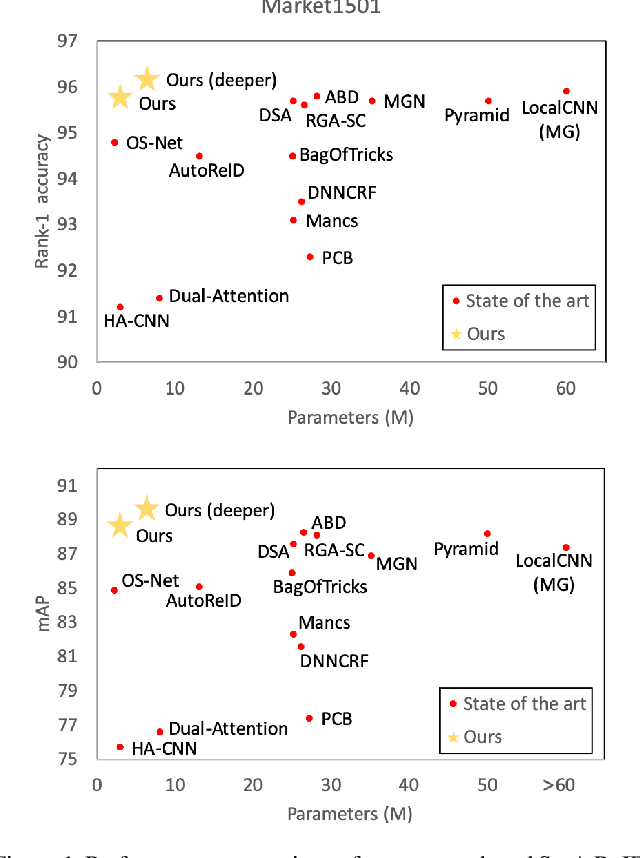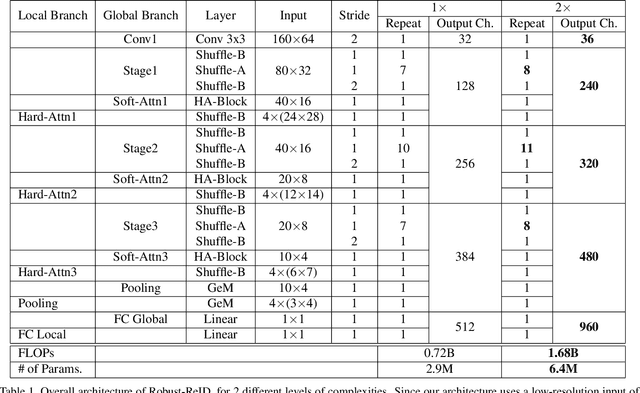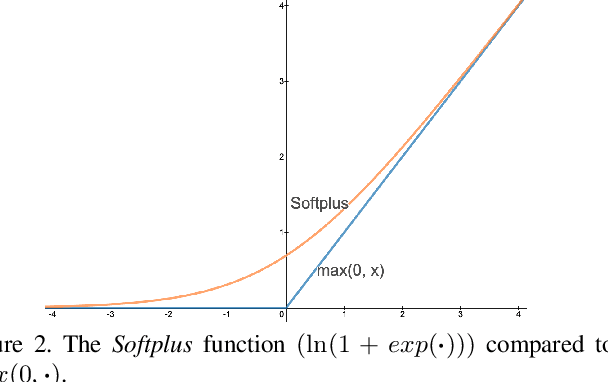Attention Network Robustification for Person ReID
Paper and Code
Oct 29, 2019



The task of person re-identification (ReID) has attracted growing attention in recent years with improving performance but lack of focus on real-world applications. Most state of the art methods use large pre-trained models, e.g., ResNet50 (~25M parameters), as their backbone, which makes it tedious to explore different architecture modifications. In this study, we focus on small-sized randomly initialized models which enable us to easily introduce network and training modifications suitable for person ReID public datasets and real-world setups. We show the robustness of our network and training improvements by outperforming state of the art results in terms of rank-1 accuracy and mAP on Market1501 (96.2, 89.7) and DukeMTMC (89.8, 80.3) with only 6.4M parameters and without using re-ranking. Finally, we show the applicability of the proposed ReID network for multi-object tracking.
 Add to Chrome
Add to Chrome Add to Firefox
Add to Firefox Add to Edge
Add to Edge